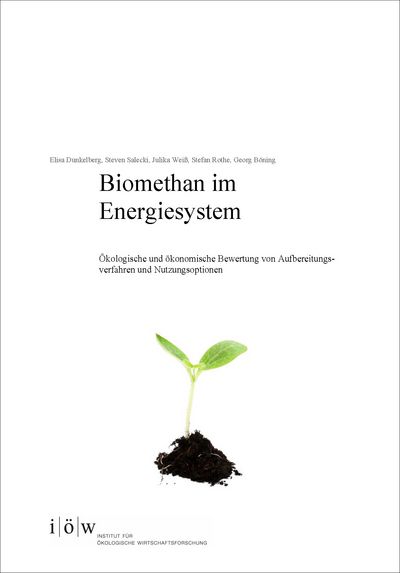Biomethane in a sustainable energy system Ecological and economical evaluation of several biogas uprgrading processes and options for the use of biomethane
Biomethane can serve important functions in the energy system, e.g. providing balancing energy or reducing the demand for fossil fuels in the mobility sector. Many future energy scenarios count on relevant amounts of bio-methane. Up until amendment of the Renewable Energies Act (EEG) in 2014, the production and processing of biogas was financially subsidized, which has led to an expansion of processing plants in recent years. This study, published by the Institute for Ecological Economy Research (IÖW), examines several biogas upgrading processes from an ecological and economic perspective. All processes investigated can mitigate greenhouse gas emissions compared to the usage of fossil energies and compared to the on-site conversion of biogas. However, the level of heat used has to be high and a weak gas treatment has to make sure that methane emissions are being avoided. The biogas processing methods currently available on the market can all be cost neutral and are potentially profitable. However, it is the potential revenue possibilities that ultimately determine whether a specific plant concept is sufficiently viable from an economic perspective. The hitherto largest market for biomethane “combined heat and power” is no longer profitable as a consequence of the profound cut in support incentives as a result of the 2014 amendment to the EEG. Inasmuch as the survivability of biogas upgrading technologies is presently dependent on market opportunities for heat generation and fuel consumption, the development of the regula-tory framework conditions will be of significant importance with regards to these markets.



